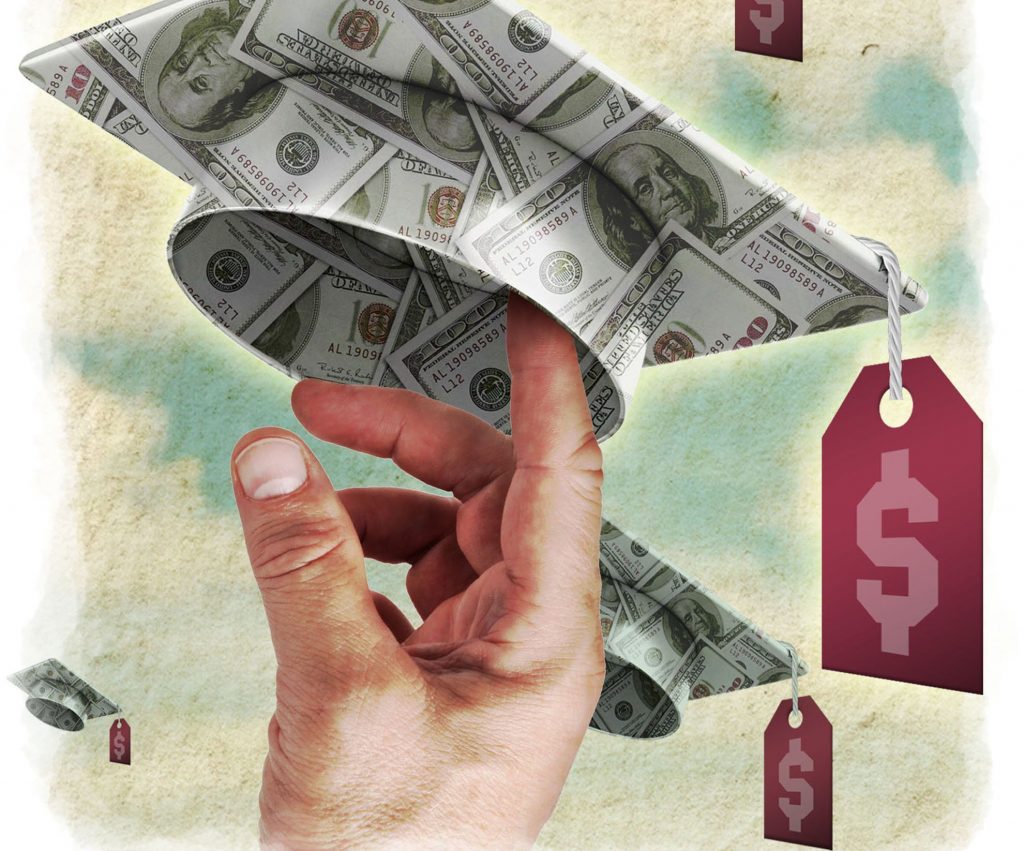Recently, many people were happy because they thought they didn’t have to pay back their school loans anymore. This was especially true for people who worked in jobs that help others, like teachers or nurses. The government made it easier for these people to get their loans forgiven through a program called Public Service Loan Forgiveness (PSLF).
The Surprising Turn of Events
But now, some people are worried. They’re saying, “Wait a minute! I thought I didn’t have to pay anymore, but now I’m being told I do!” It’s like being told you can keep the crayons, but then your friend changes their mind and wants them back.
Why is This Happening?
Understanding PSLF
PSLF is a special program for people who work in jobs that help the community. If they work for 10 years and make payments on their loans, the rest of what they owe can be forgiven. It’s like saying, “You’ve helped people for a long time, so we’ll help you with your loan.”
The Problem with PSLF

For a long time, PSLF didn’t work very well. Many people who thought they would get their loans forgiven didn’t. It was like promising a big ice cream cone but then giving out tiny ones instead.
Trying to Fix PSLF
The government tried to make PSLF better. They said, “Let’s count more things to help people get their loans forgiven faster.” This made many people happy because they suddenly qualified for forgiveness when they didn’t before.
The Current Situation
Loan Servicer Issues
A company called MOHELA helps the government manage these loans. Some people are saying MOHELA is telling them they have to start paying again, even after being told their loans were forgiven. It’s confusing and upsetting for many people.
Why This Might Be Happening
- Mistakes: Sometimes, people make mistakes. The government or MOHELA might have accidentally told some people their loans were forgiven when they weren’t supposed to be.
- Complicated Rules: The rules for forgiving loans are very complicated. It’s like a big puzzle, and sometimes pieces get put in the wrong place.
- Changes in Qualifications: The government might be looking at everyone’s situation again to make sure they really qualify for forgiveness.
What This Means for Borrowers
Uncertainty and Worry
Many people who thought their loans were gone are now worried. They’re asking questions like:
- “Do I really have to pay again?”
- “Was there a mistake?”
- “What if they change their mind years from now?”
Seeking Answers
People are trying to get answers from MOHELA and the government. It’s like asking your teacher to explain a confusing homework problem.
What Experts Are Saying
Be Cautious
Some experts say it’s a good idea to be careful. Even if you’re told your loan is forgiven, keep any papers that show this. It’s like keeping the note that says you can keep the crayons, just in case.
Check and Double-Check
If you’re told your loan is forgiven, it’s a good idea to ask lots of questions and make sure. You can:
- Call MOHELA or the Department of Education
- Ask for written confirmation
- Keep all your documents safe
Understanding the Process
Experts explain that before loans are forgiven, there are usually checks to make sure everything is correct. It’s like having your teacher check your work before giving you a gold star.
What to Do If Your Forgiveness is Reversed

Stay Calm
If you’re told you need to start paying again, don’t panic. It’s okay to feel upset, but remember there are people who can help.
Gather Information
Collect all the papers and emails about your loan forgiveness. This is like gathering all the pieces of a puzzle to see the whole picture.
Ask Questions
Contact MOHELA or the Department of Education. Ask them to explain why things changed. It’s important to understand what happened.
Seek Help
If you’re still confused, there are people called student loan advocates who can help you understand what’s happening and what to do next.
The Future of Student Loan Forgiveness
Ongoing Changes
The government is still trying to make student loan forgiveness work better. They might make more changes in the future to help more people.
Staying Informed
It’s a good idea to keep learning about student loans and forgiveness programs. This way, you’ll know what to expect and what you need to do.
Frequently Asked Questions
Q: Can student loan forgiveness really be taken back?
A: Yes, in some cases it can. This is why it’s important to keep all your documents and stay informed about your loan status.
Q: What should I do if I’m told my forgiven loan is active again?
A: Contact your loan servicer (like MOHELA) right away. Ask for a detailed explanation and request everything in writing.
Q: How long after forgiveness could it potentially be reversed?
A: There’s no set time limit. This is why it’s important to keep your loan forgiveness documents indefinitely.
Q: Is there a way to prevent my forgiveness from being reversed?
A: While you can’t prevent it entirely, keeping good records and staying in touch with your loan servicer can help you address any issues quickly.
Q: What if I believe my loan was correctly forgiven but is being incorrectly reinstated?
A: Gather all your documentation and contact both your loan servicer and the Department of Education. You may also want to consult with a student loan advocate or attorney.
Conclusion
Student loan forgiveness is a complicated topic that’s changing all the time. It’s like a big, ongoing game where the rules keep changing. While it’s great that many people have had their loans forgiven, the recent reversals show that nothing is certain.
If you have student loans or are working towards forgiveness, here are the most important things to remember:
- Keep All Your Documents: Save everything about your loans and forgiveness, just like you’d save a special drawing.
- Stay Informed: Keep learning about student loans and forgiveness programs. It’s like studying for a test – the more you know, the better prepared you’ll be.
- Ask Questions: If something doesn’t make sense, ask! Don’t be afraid to contact your loan servicer or the Department of Education.
- Be Prepared: Even if your loans are forgiven, be ready in case something changes. It’s like having a raincoat ready even when the sun is shining.
- Seek Help When Needed: If things get confusing, don’t hesitate to ask for help from experts who understand student loans.
Remember, while the idea of student loan forgiveness is to help people, the process can be complicated. By staying informed and prepared, you can better navigate any changes that come your way. Keep learning, keep asking questions, and don’t be afraid to speak up if something doesn’t seem right. Your education and financial future are important, and understanding your student loans is a big part of that.
